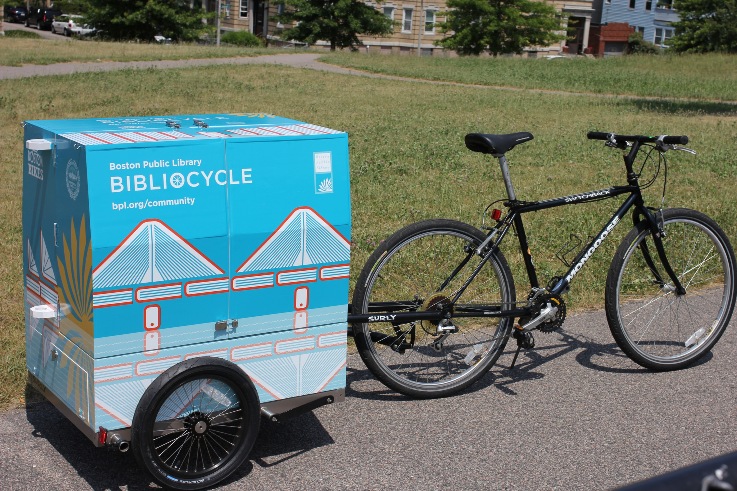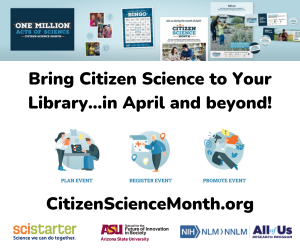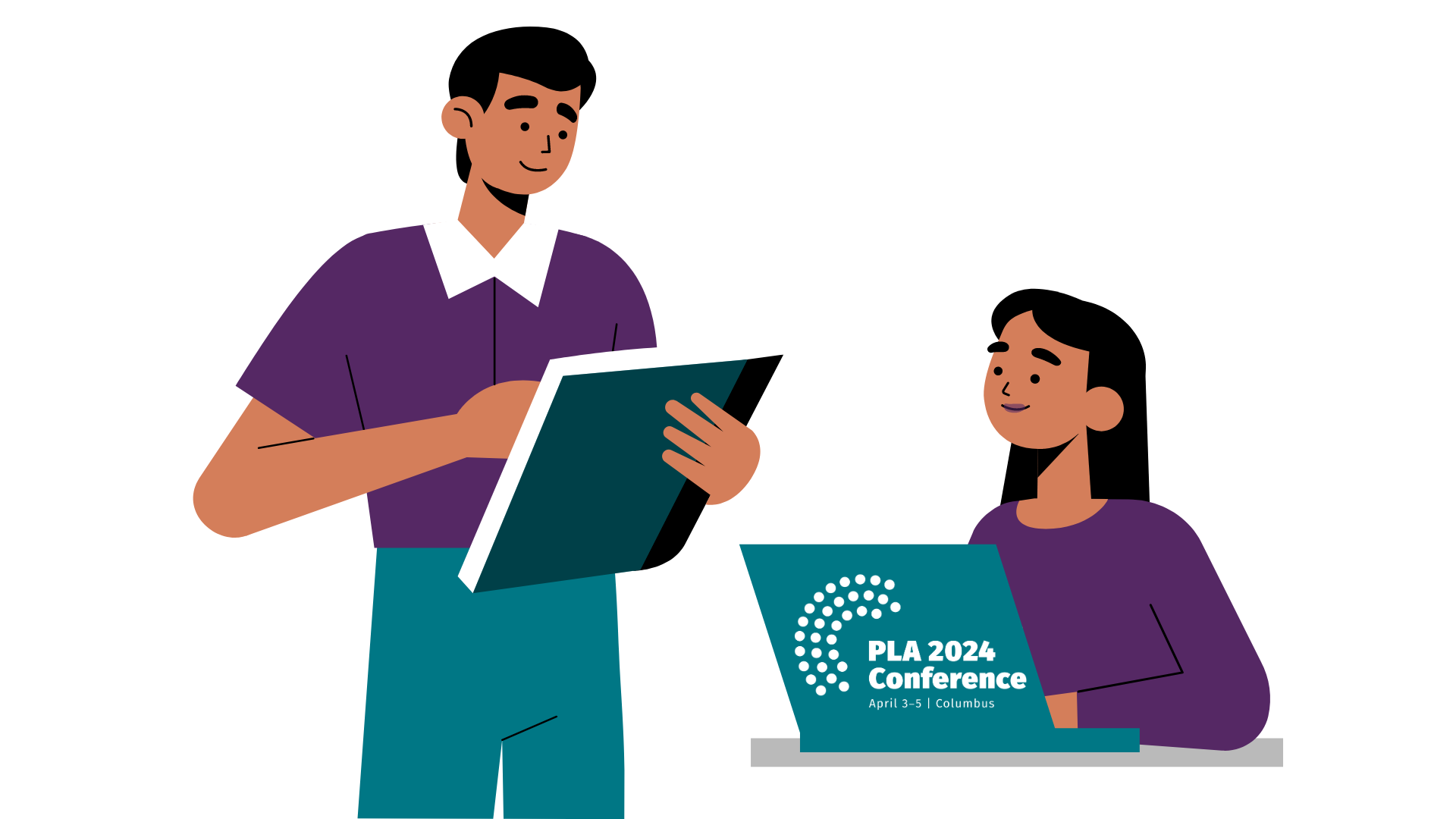Bike-Based Library Services: Innovative Outreach

Bike-based outreach services from public libraries have received a lot of attention recently. For instance, American Libraries just provided an excellent overview of bike services. Why bikes? The basic idea is that with a little customization, creativity, and legwork, a bicycle can become a mobile point of service in the community. Bicycles go where bookmobiles can’t, provide an element of surprise, and spark a personal connection that will promote library services in new ways.
A preliminary look at bike-based services in public libraries across the United States reveals that bike-powered services can be a flexible medium for innovative outreach in a variety of urban settings. The small scale nature of a bike allows highly personal contact to a community even en route to scheduled events.
Zac Laugheed, a librarian with Denver Public Library, describes their bike-based service DPL Connect as “a vehicle that allows us access to our community in a different way.” As described in the article cited above, DPL connect is “a bike-powered service that circulates books; provides a wireless hotspot; and assists with research, ebook downloads, and library card sign-ups.” Certainly, bike-based library services compliment an expanding urban bike culture. Within the context of public libraries, these outreach programs also produce entirely new contexts for service. “Red lights turn into reference interviews…people yell from across the street and cheer from their apartment balconies,” Laugheed says.
“Libraries, books, and librarians can excite people of all ages, especially when they are found in unexpected places,” says Emily Meyer, Children’s Librarian at the Uphams Corner Branch of the Boston Public Library. The Boston Public Library has introduced Bibliocycle with service to community events, where residents can sign up for cards, check out books, and “see demonstrations of the library’s digital resources.” Meyer says, “I love being able to reach new patrons with the program, but it’s also much fun to surprise current patrons who don’t expect to see librarians outside of the library.”
Innovative Service
Both librarians cite recording basic statistics as part of evaluation of these services. According to Meyer, the Bibliocycle pilot program has been an opportunity to adjust and fine tune services. Bike-based service requires working with limitations, especially the heft of books. Meyer says that BPL notes “which books are most popular—picture books, teen books, adult fiction, and so forth—so we can adjust which books to bring with us, given there is a limit to how many books the Bibliocycle can safely carry.”
Laugheed cites the value of “excitement and exposure” in evaluating DPL Connect. “The true impact is that the people of Denver look at the library in a different way,” he says.
Christine Schonhart, Director of Library Services, Branches for Boston Public Library, says that, “We are meeting new people, talking about our services and even reintroducing people to the library who may have been away from us for a while.”
How are libraries using bike-based services in your community?
**
More information (and upcoming events) about the Bibliocycle program from Boston Public Library can be found on their website for community events. For more information about Denver Public Library, visit their website.
Cover image credit: Courtesy of Boston Public Library. Retrieved from https://www.flickr.com/photos/bostonpubliclibrary/14444364719/in/set-72157645624517311
Works Cited
Francis, Chris. “Custom Library Book Bikes Roll Out Across US.” American Libraries. August 13, 2014. http://www.americanlibrariesmagazine.org/article/custom-library-book-bikes-roll-out-across-us (accessed August 20, 2014).







